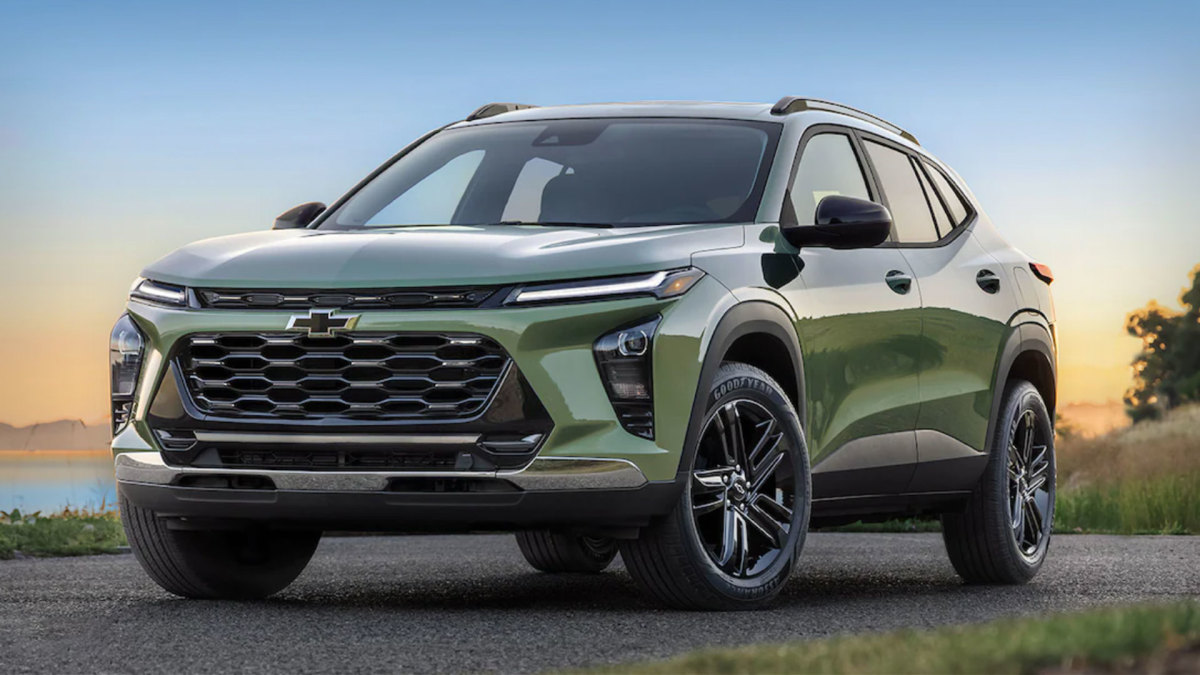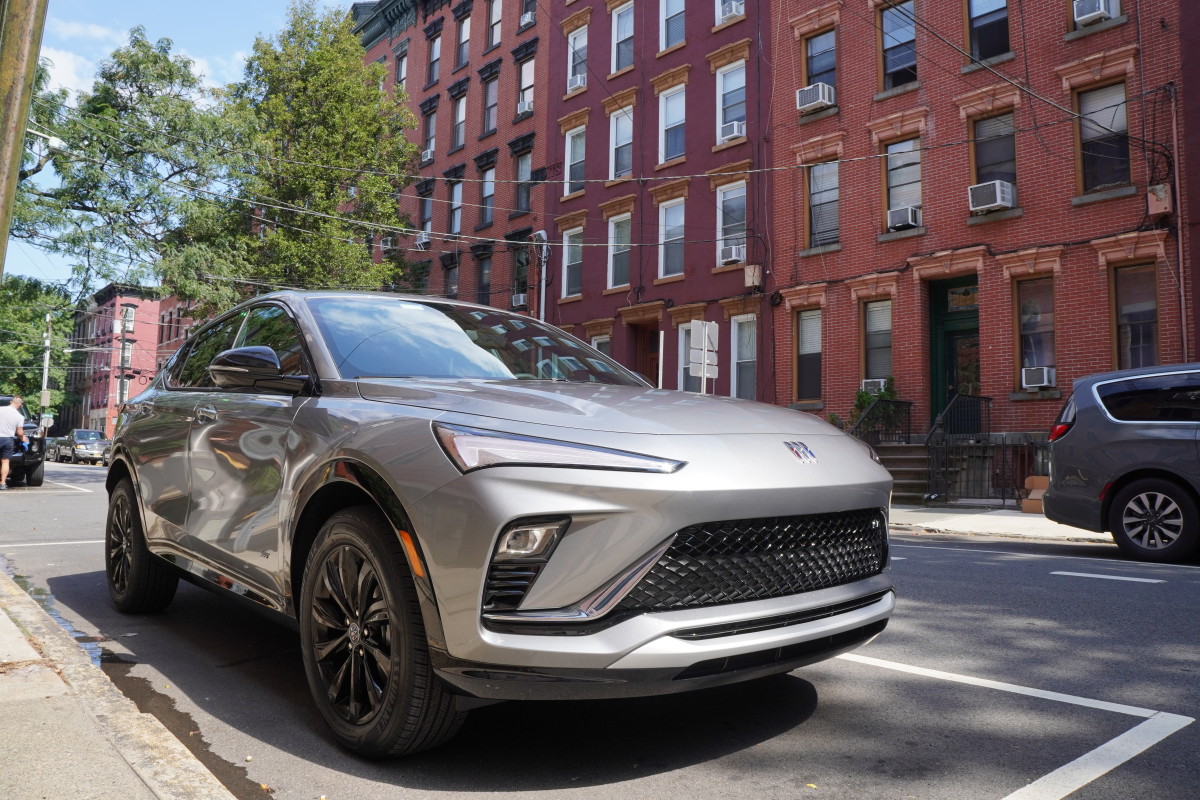
The United States is a nation full of interstate highways and lots of infrastructure meant to support individual drivers in automobiles. Outside of major metropolitan cores like New York City, San Francisco and Chicago, public transportation methods like trains and buses are not viable alternatives to getting around.
Because of this, we drive a lot. According to the latest edition of the American Automobile Association's (AAA) American Driving Survey, 95.3% of U.S. residents aged 16 and older drove at least occasionally in 2023.
If anything is true about today's new car market, new cars are way too expensive for many reasonable consumers in the United States. These days, buyers looking to buy a new car off the lot pay a pretty penny for their shiny set of wheels.
According to the latest figures by Kelley Blue Book and Cox Automotive, the average price paid for a new car in November 2024 reached a whopping $48,724, an increase of $699, or 1.5% from the same period a year prior.
These conditions have many buyers looking at cheaper used cars to score good deals, but some find creative ways to afford a new shiny piece of metal.
According to a new report by Edmunds, a disturbing number of auto buyers are taking on insane payment plans to afford their shiny new set of wheels: Average new-car loan APRs reached 6.8% in Q4 2024 and 18.9% of buyers took on monthly payments topping $1,000 or more.
With the average loan reaching levels that would make Dave Ramsay and Caleb Hammer seethe (the average car finance loan was $42,113 in Q4 2024), a new segment is on the rise. However, its successes may be short-lived on the eve of a new administration that aims to change everything.

Chevrolet
Cheap is king for automakers
In 2024, sales of more affordable vehicles with MSRPs well under the average $48,724 saw a huge increase across both foreign and domestic brands.
Japanese automaker Nissan (NSANY) , which has recently liked with a potential merger with fellow automaker Honda, has seen sales of some of its lower-priced favorites increase by double digits. The brand sold 152,659 units of its compact Sentra and 42,589 units of its $17,190 Versa in 2024, a respective increase of 39.8 and 71.7 percent.
As for Honda (HMC) , sales of its crossover SUVs across various sizes saw double-digit increases in 2024. Over 151,468 compact HR-Vs and 402,791 CR-Vs moved off Honda lots last year, representing respective increases of 23.9 and 11.4 percent. Honda's $24,250 Civic sedan and hatchback also saw a 20.8% jump from the prior year.

James Ochoa
Over in Detroit, Ford (F) saw a 39.4 jump in sales for its compact Maverick pickup truck, while General Motors (GM) saw big winners across its portfolio of brands.
Though its brand image is dominated by the likes of the hulking Suburban and Tahoe full-size SUVs, sales of the Chevrolet's lowest-price offering, the $20,400 Trax, jumped dramatically in 2024. Last year, the bowtie brand moved 200,689 units of the small crossover SUV from its dealer's lots, an 83.9% jump from the previous year.
Sales of the related Envista under its Buick brand — which retails for $24,795 — also saw a massive jump last year. In 2024, Buick managed to move 51,316 units of the upmarket crossover, marking a 285.8% jump since the car went on sale in the summer of 2023.
More Automotive:
- Stellantis’s STLA frame platform could be the future of trucks
- Subaru CEO could shift U.S. strategy following Trump win
- Feds to require new cars to have an 'annoying' safety feature
Trump's tariff plans may spoil the cheap car appeal
But while Americans increasingly gravitate towards cheaper and smaller models from beloved automakers, there is an inconvenient truth that reveals what truly makes the sausage.
Many of these popular models are made overseas. Buick's Envista is made by GM Korea (formerly known as Daewoo), while the American-market Chevy Trax is made in multiple places, including GM Korea and GM's facility in San Luis Potosí, Mexico.
This phenomenon is not limited to "domestic" automakers, either. Some models of Honda's popular Civic sedan is made in Canada, while its HR-V compact crossover SUV and Nissan's Sentra is imported from factories located in Mexico.
With Trump aiming to impose 25% tariffs on all imported goods from Mexico and Canada, the so-called "cheap car" may not exist anymore, as tariff-related costs will be passed onto the consumer.
Tariffs also affect cars built domestically. According to data from the National Highway Traffic Safety Administration (NHTSA), 30-50% of parts used to assemble popular cars domestically are imported from Mexico or other countries overseas. In a note, Wolfe Research analyst Emmanuel Rosner said that the overall impact of Trump's tariffs could increase prices by $3,000 per car sold in the United States.
These provisions are making auto execs nervous. South Korean automaker and Hyundai stablemate Kia makes cars in Georgia, but 18% of Kia’s U.S. sales come from models made in Mexico. Last year, it moved 139,778 units of the Forte and its replacement, the $21,990 K4.
In a statement to the Wall Street Journal, Kia U.S. head Steven Center acknowledged that trade barriers will ultimately hurt not just Kia, but the entire U.S. auto industry.
"Everyone’s got a pretty big case of anxiety here," Center said. "In two words: Please don’t. Punch me in the arm. Smack me in the head. But please don’t put a tariff on [our cars]."
The Nissan Motor Company trades on OTC markets in the United States as NSANY and on the Tokyo Stock Exchange under the ticker number 7201.
The Honda Motor Company, General Motors and Ford are listed on the New York Stock Exchange under the respective tickers HMC, GM and F.
Related: Veteran fund manager issues dire S&P 500 warning for 2025







